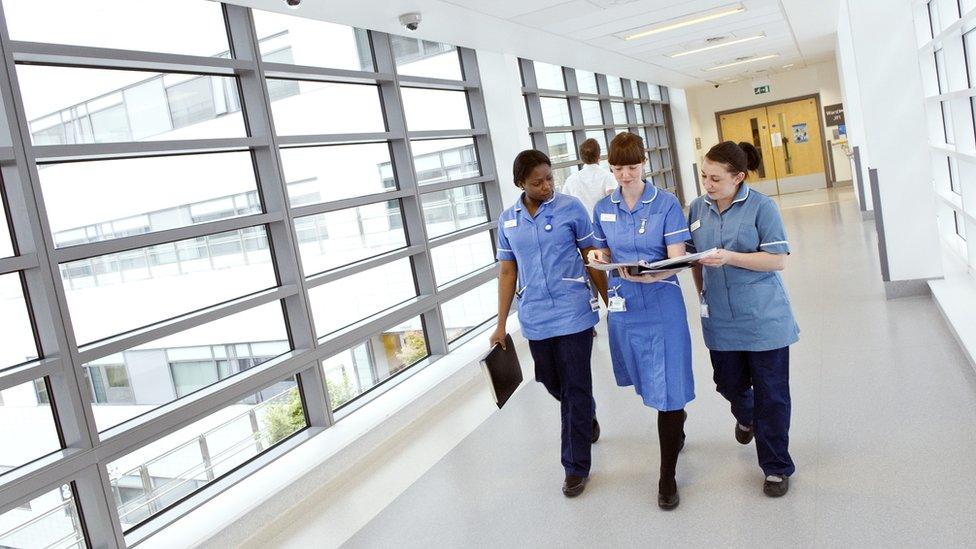The £97m bill for 'midwife shortage'
- Published
- comments
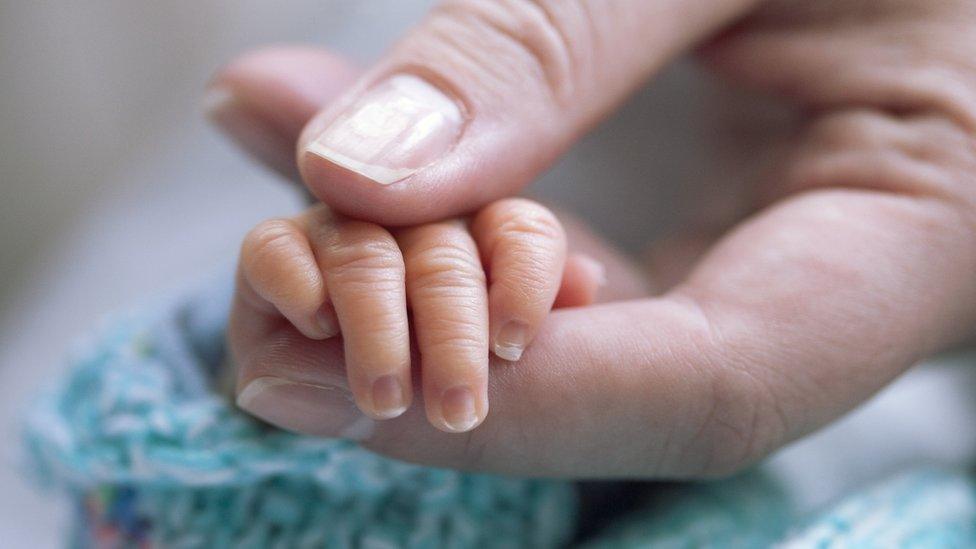
UK maternity units are turning to expensive temporary staffing arrangements such as overtime and agency staff to plug gaps in midwife rotas, union leaders say.
Royal College of Midwives data showed the bill hit nearly £100m in 2016, with services having to pay hourly fees twice as high as the normal rates.
The union said that was enough to cover the "national shortage" of 3,500 staff.
The findings come as the RCM's annual conference got under way in Manchester.
It compiled the figures using the Freedom of Information Act, receiving responses from 159 local maternity services, close to 99% of those asked.
Services were asked for their spending on three types of temporary staffing arrangements:
overtime
agency staff
the NHS bank, effectively the health service's in-house agency service
A total of £97m was spent last year.
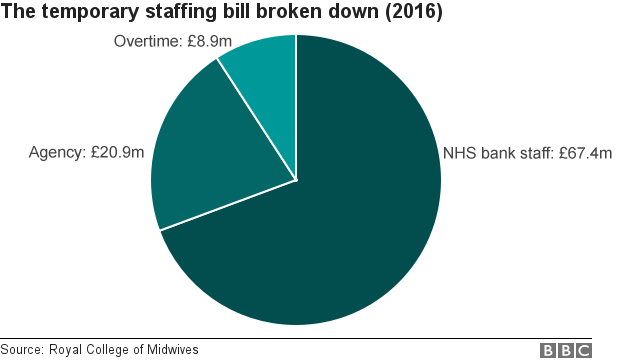
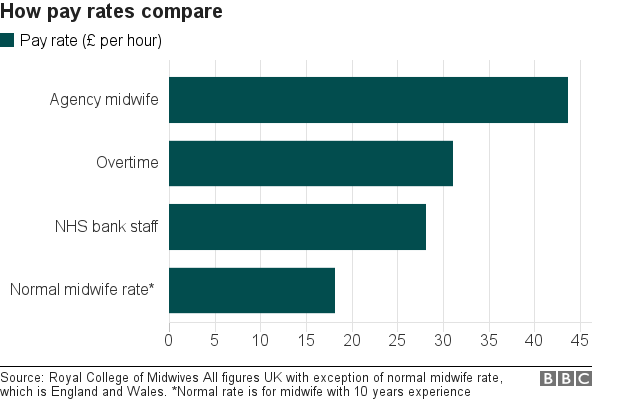
By far the biggest area of spending was on the NHS bank, which accounted for two-thirds of the bill.
The RCM said the fact maternity services were turning to these arrangements on such a scale showed the service was "under-staffed and under-resourced".
It also highlighted the levels of pay required to get these staff to fill shifts - the average hourly spend on agency staff was £43.65, compared with £18.20 for a staff midwife with 10 years' experience in England and Wales.
RCM director of policy Jon Skewes said: "The use of temporary midwives to staff permanent shortages is counterproductive and smacks of short-termism when there needs to be sensible and strategic long-term planning in midwifery and across the NHS.
"It is costing more in the long run to pay agency, bank and overtime than it would if services employed the right numbers of midwives in the first place."
The £97m bill for temporary staff would be enough to pay for between 2,700 and 4,300 midwives depending on their experience level.
In England, the RCM estimates services are 3,500 midwives short.
The RCM also said it thought the bill was rising.
It carried out similar research in 2015 - and while it is not exactly comparable, it did suggest the spending on temporary staff had increased in England at least.
The Department of Health in England pointed out it had brought in a cap on agency spending which was reducing that element of the bill, while overall midwife numbers were rising.
"We want the NHS to be the safest place in the world to have a baby," a spokeswoman added.
Meanwhile, Scottish health secretary Shona Robison said Scotland was the least reliant on temporary staffing arrangements out of the four UK nations with no agency spending at all.
- Published3 July 2017
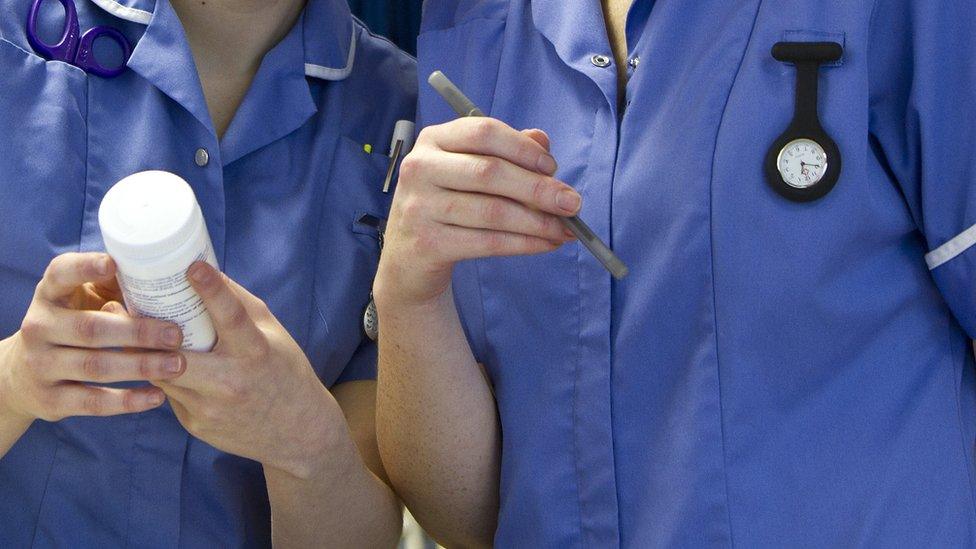
- Published3 July 2017
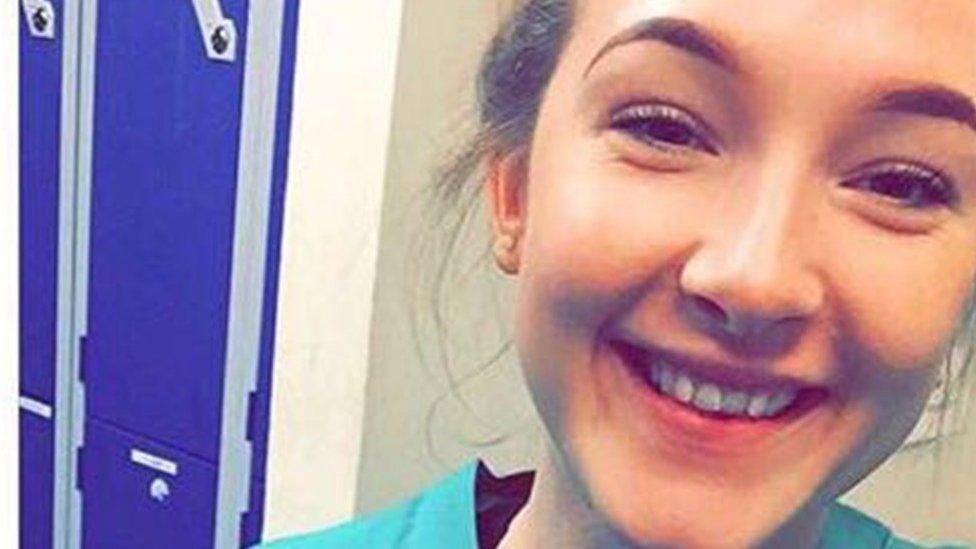
- Published3 July 2017
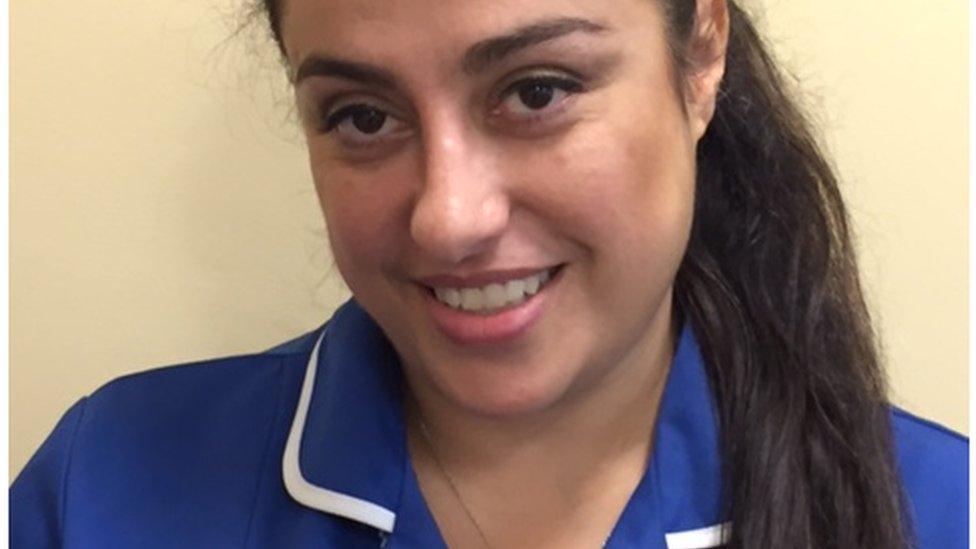
- Published14 May 2017

- Published13 April 2017

- Published12 June 2017
